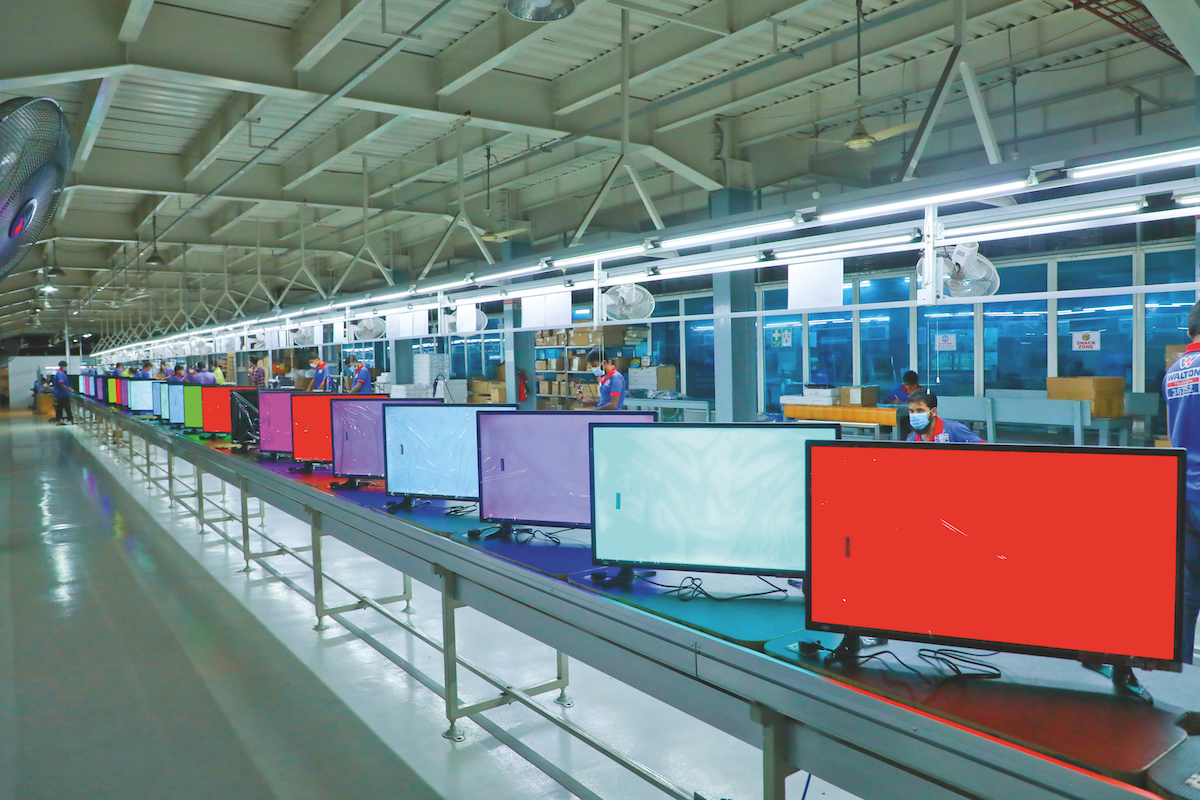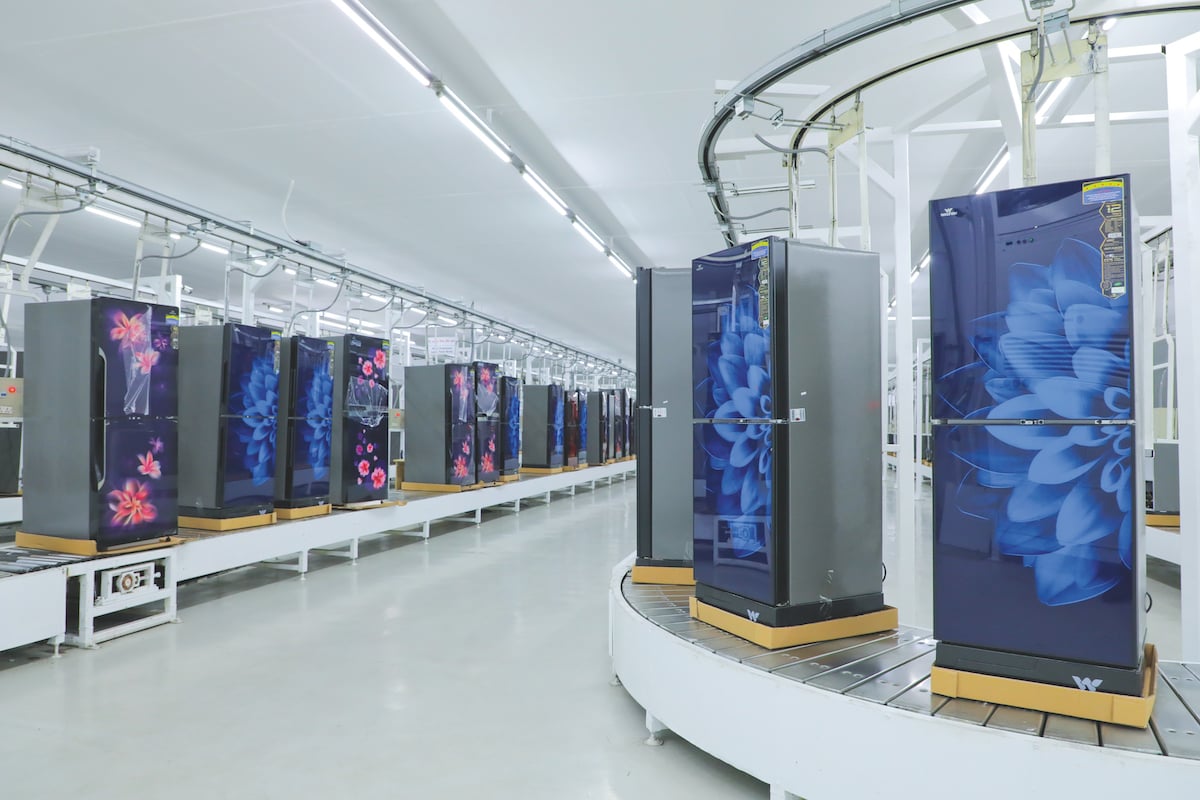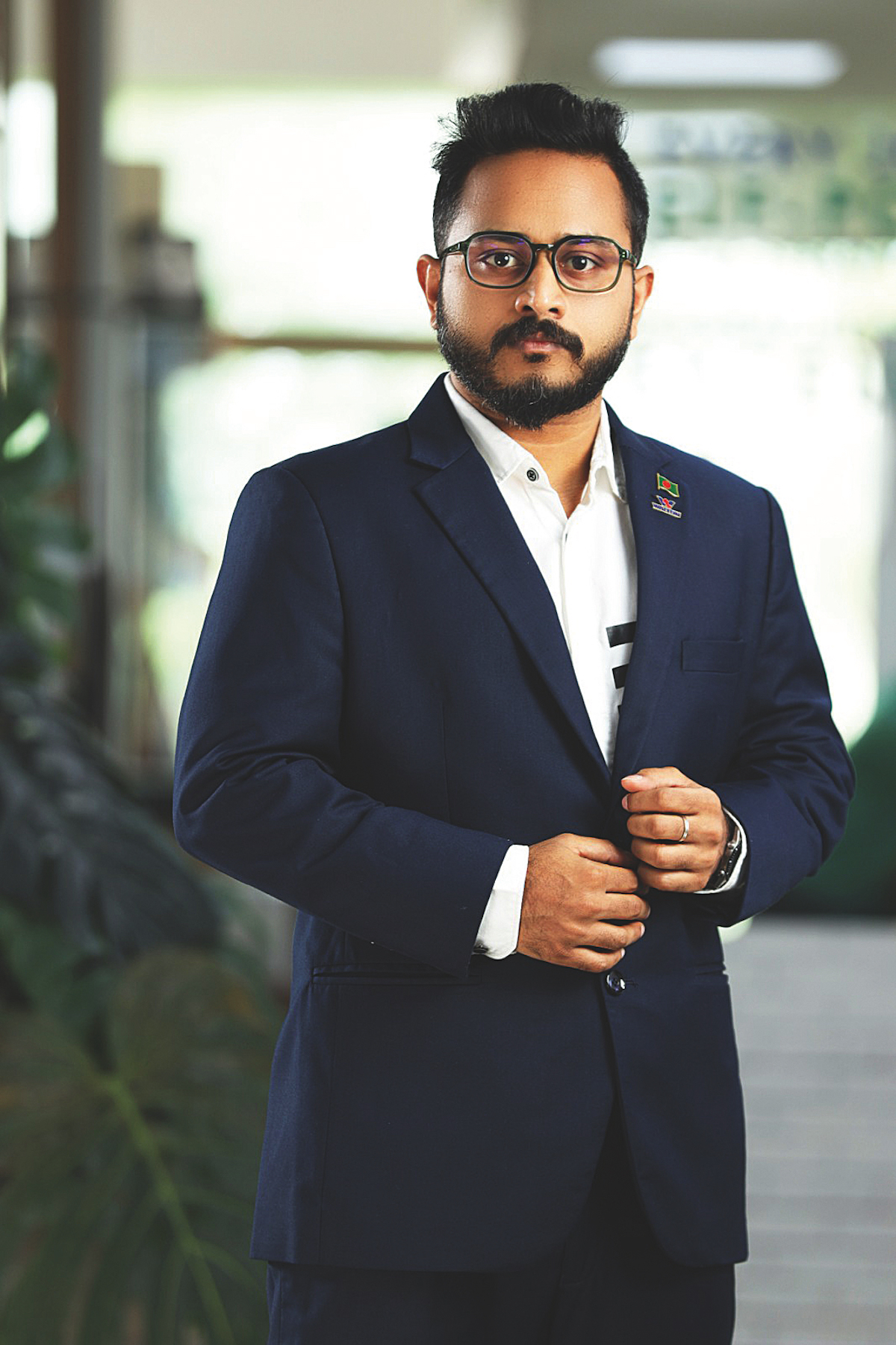Golam Murshed never had any doubts about what he wanted when he finished his mechanical engineering degree at the Islamic University of Technology in Bangladesh. Trips abroad were not on the agenda; instead, he took a job at Walton Hi-Tech Industries and knuckled down to learn the business and make the most of opportunities presented to him. That was in 2010.

Since then he has been promoted from Assistant Engineer to Managing Director and CEO, first through the air-conditioning division, followed by Walton’s research and development department, and then the refrigeration division, where he doubled its production capabilities in just two years through process improvement. After three years he was promoted to CEO of the division, and then finally to Managing Director in late 2020, at the age of just 30.
His meteoric rise through company ranks came as a result of his superiors taking note of his work ethic, but especially his entrepreneurial and leadership skills in his various roles. Yet at least part of his motivation comes from more than a desire for a prosperous career. There are greater aspirations, he says. “I always thought of doing something for the country,” Golam tells The CEO Magazine.
“That is why I had no desire to leave. Having studied on the technical side, I was searching for ways to work for the country in this sector. Shortly after graduation, I saw the vacancy at Walton and tried to take advantage of the opportunity. Since then my interest in working at Walton has developed.”
Golam has distinguished himself in the Bangladeshi manufacturing industry in that time, becoming a general member of the Bangladesh Refrigerator Manufacturers and Exporters Association, a member of the Bangladesh Online Journalist Association and a member of The Federation of the Bangladesh Chambers of Commerce and Industry. It’s easy to understand Golam’s interest in Walton’s business.

Walton Hi-Tech Industries has undergone expansive diversification since its inception in 1977. It now designs and manufactures refrigerators and freezers, air-conditioners, LED and LCD televisions, other home appliances, smartphones and even motorcycles. The company is now regarded as the highest exporting Bangladeshi electronics manufacturer, selling its products in more than 20 countries including India, Nepal, Bhutan, Myanmar, the Maldives, United Arab Emirates, Qatar and Nigeria.
It is also entering competitive electronics markets in the US, Europe, Australia, South Africa, Singapore, Saudi Arabia and Sri Lanka. Golam has seen dramatic changes during his 11 years at the company. While leading the refrigerator division, he was responsible for its highest sales, and led the acquisition of several refrigerator and air-conditioner manufacturing plants in Vietnam, Taiwan and China.
Market Moves
Walton Hi-Tech Industries presently holds about a two-thirds share of the Bangladeshi refrigerator market, about half of its television market sales and one-third of its air-conditioner market. The company is now pushing for a quarter of the domestic market for lifts.
He also drove the company’s public listing on the stock exchange in 2020, where in just a few months it became the second-largest market capitalised company in Bangladesh. In the 2020–21 financial year it earned its highest ever sales and net earnings, and Golam introduced its Go Global project in a bid to access global markets. “Our aspiration is not just being the top-tier brand in the world, but to inspire and lead the technological innovation pertinent to this industry,” he says.
“We have ambitious plans that focus on investing in innovative technologies, growing our international presence and increasing our global market share. We want to develop a technological ecosystem, centred on Walton, which will ultimately lead the industry. We are committed to maintaining our dominant position and increasing our product range by investing in our research and development capabilities, which is one of the main drivers of our growth.”

Golam and Walton are committed to global expansion and will continue to establish offices in new regions to provide greater support to customers worldwide. “We certainly believe that by 2025 we will be able to make our mark in 193 countries,” he predicts.
“We are in the process of expansion to every viable territory with suitable expansion opportunities.” To that end, Walton has long committed to global quality standards. It is certified ISO 14001:2004 for an environmental management system, ISO 9001:2015 for Quality Management Systems and holds the OHSAS 18001:2007 certificate for adopting sound occupational health and safety management systems. A Total Quality Management team improves operations and ensures it maintains acceptable production levels, while a research and innovation management team initiates greater innovation in its operations.
“We are keen to adopt cutting-edge technology and procedures, driven from our own research and from available global sources to streamline each step of our processes and systems,” Golam shares.

“These efforts strengthen the relationship between our processes and people to make sure we deliver optimum results for our stakeholders.” In addition, Walton relies implicitly on support from suppliers of componentry for its wide range of products and technologies. The company’s focus on quality control and manufacturing performance places the onus on its suppliers to deliver through strict quality parameters and performance measures. That’s a win–win situation, Golam explains.
“We believe in long-term relationships with our major stakeholders. We are trying our level best to set a sustainable relationship with our valued suppliers by honouring our commitments, encouraging regular reviews of deliverables and performance through clear and consistent communication,” he says. “We have implemented a strategic partnership program for key suppliers and a supplier audit system, with a yearly commitment agreement with our suppliers.”
Uncomfortable truths
Don’t mention ‘comfort zones’ to Golam. While they have their place for many, he believes they are not the way to achieve greater success. People must push themselves into ‘uncomfortable’ situations to learn and develop higher skill levels.
We certainly believe that by 2025 we will be able to make our mark in 193 countries.
“Comfort zones are not really good for career development,” he points out. “Comfort zones are good for those who do not want variation in their careers. It’s not bad to be in a comfort zone, but that is not the way to go. I think those who think out of the box will go ahead.” Innovative thinking and sheer hard work are two of Golam’s ingredients for success, both personally and for the company more broadly. There are no substitutes or workarounds in getting to the top.

Our aspiration is not just being the toptier brand in the world, but to inspire and lead the technological innovation pertinent to this industry.
“Hard work is the key to my success – working with consistency. I’ve given much time and dedication to the Walton brand as a whole. That was my contribution and may be the reason why the authorities picked me to lead the company.”
But work isn’t everything. Golam has found time for a program to help local communities and build on Walton’s success for the country at large. It fits neatly into his desire to contribute to the development of Bangladesh. “My father always inspired me to do good for the community, to always find avenues of giving back to the world and be grateful,” he shares.

“This pivots into my personal venture of Better Bangladesh Tomorrow, through which I plan to do exactly what it says – help empower Bangladesh for a better tomorrow, powered by youth for a well-trained, sustainable and motivated dynamic force in the world to be reckoned with. In the Better Bangladesh Tomorrow initiative, we admire positive thinking and efforts that enhance and inspire human potential.” For someone in just his early 30s, Golam is already a role model for future leaders in Bangladesh.


